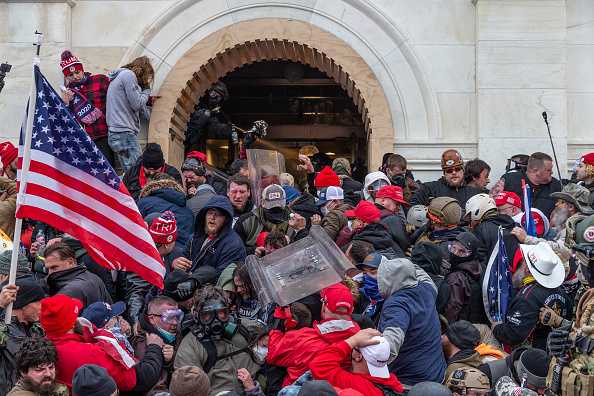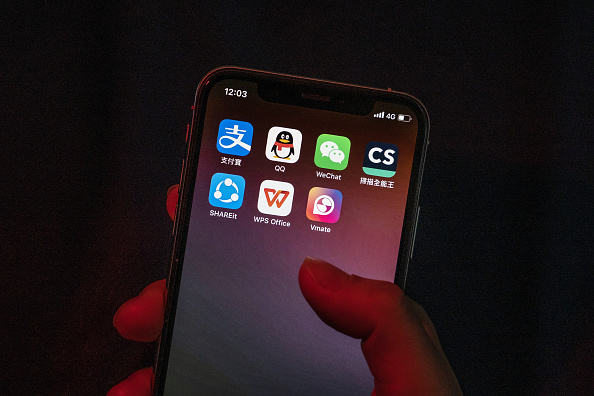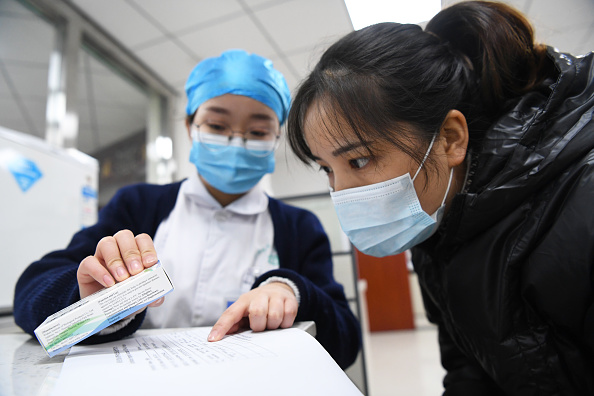
 Capital Chaos
Capital ChaosPeople and governments around the world reacted with shock and concern after watching supporters of President Trump break into the U.S. Capitol Building this week. Some Chinese officials criticized the U.S. over the violence and disorder, while comparing the riot to protests in Hong Kong. "The response and words used by some in the U.S. to what happened in Hong Kong in 2019 were completely different to what they used for today's ongoing events in the U.S.," foreign ministry spokeswoman Hua Chunying remarked. But many reject the parallel, noting that the two are "diametrically opposed" in their goals. "At [the] core what many fought for in Hong Kong was EXACTLY what DC extremists [were] trying to dismantle in the US: the right to vote," wrote Tony Lin, former Bloomberg journalist.
At the same time, Hong Kong authorities arrested activist leaders and politicians this week for their involvement in an informal primary election last year, detaining a total of 53 people. The mass arrests may significantly reduce political opposition in Hong Kong, and follow months-long protests over the national security law, which was enacted in June 2020. Biden's pick for the next U.S. secretary of state, Antony Blinken, denounced the arrests as "an assault on those bravely advocating for universal rights." More on the future of the bilateral relationship in Professor Minxin Pei's latest article for China-US Focus.
 Trump's Tech Ban
Trump's Tech BanPresident Trump signed an executive order banning eight prominent Chinese apps earlier this week. The order will prohibit U.S. transactions with Alipay, WeChat Pay, and six other apps, although the administration is still considering adding tech giants Alibaba and Tencent to the list. While Trump claims China is using these apps to advance its national security and economic agenda, foreign ministry spokeswoman Hua Chunying said, "this is an example of the United States over-generalizing the concept of national security and abusing its national power to unreasonably suppress foreign companies."
The Beijing Municipal High People's Court recently ruled that Amazon can no longer use its cloud-computing business's trademark AWS logo, claiming the "AWS" trademark belongs to a Chinese software company. Amazon has also been ordered to pay a fine of 76.5 million yuan.
There is increasing international media speculation around the fact that Jack Ma, head of Alibaba, has not been seen since October when he made a speech critical of the country's banks and financial systems, and accused authorities of stifling innovation. The Chinese government is likely sending a message that "tech entrepreneurs may be the most glamorous… but there is no one individual, no one company bigger than the Chinese Communist Party," according to Rana Mitter, professor of history and politics of modern China at Oxford University.
 Continued Progress
Continued ProgressChina is on track to produce its second effective coronavirus vaccine, according to Brazillian officials. Medical officials in São Paulo reported the vaccine by Chinese company Sinovac to be 78% efficient, compared to a 95% efficacy rate for Pfizer-BioNTech's vaccine. Late last month, regulators in China approved the country's first vaccine, developed by state-owned company Sinopharm. Sinovac has already sold over 300 million doses of its vaccine, primarily to low-income countries, and says it will be able to produce 600 million doses this year.
Meanwhile, the capital of Hebei province, less than 200 miles away from Beijing, was put on lockdown this week after coronavirus cases spiked. The city of Shijiazhuang, which is home to roughly 11 million people, reported 123 current cases and around 180 asymptomatic cases on Thursday, prompting the city to block anyone from leaving the city by car, bus, or plane. While cases remain low compared to the rest of the world, Hebei's lockdown will be China's most stringent since the country shut Wuhan down last year. Still, the spread of COVID in China remains relatively slow, with less than 100,000 reported cases in 2020.
Prepared by China-US Focus editorial teams in Hong Kong and New York, this weekly newsletter offers you snap shots of latest trends and developments emerging from China every week, while adding a dose of historical perspective.
- 2020-12-18 All Eyes on 2021
- 2020-12-12 Midwest to Middle Kingdom?
- 2020-12-04 Shifting Winds
- 2020-11-21 Multilateralism on the Move
- 2020-11-14 Staying Tough
- 2020-11-07 Battleground Ballots
- 2020-10-30 Knock Knock
- 2020-10-24 Looking Back and Moving Forward
- 2020-10-16 COVID Cluster
- 2020-10-10 Election Looming
- 2020-10-03 Golden Week Kicks Off
- 2020-09-26 Virtual Diplomacy
- 2020-09-18 Digital Domain
- 2020-09-12 Reframing the Ground Rules
- 2020-09-05 Reciprocity in Action
- 2020-08-29 Who’s Tougher on China?
- 2020-08-22 To Talk, Or Not To Talk
- 2020-08-15 Domestic Circulation
